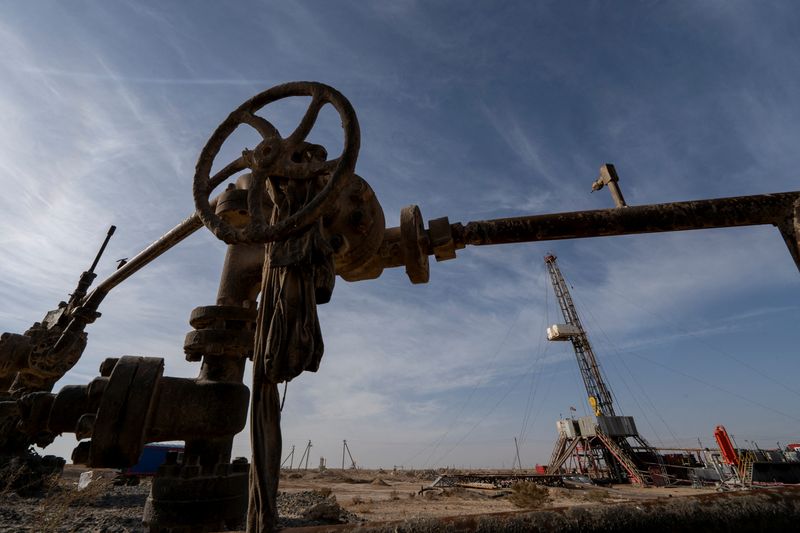Oil down $2 as investors digest weak US job data
By Georgina McCartney
HOUSTON (Reuters) -Oil prices slid by more than $2 on Friday, on track for a fourth successive weekly drop after data showed that the U.S. economy added fewer jobs than expected in July and weak Chinese economic data further weighed.
Brent crude futures fell $2.61, or 3.28%, to $76.91 a barrel by 11:52 a.m. ET. U.S. West Texas Intermediate crude futures were down $2.82, or 3.7%, at $73.49.
U.S. crude futures fell by more than $3 per barrel during the session.
U.S. job growth slowed more than expected in July as unemployment increased to 4.3%, pointing to possible weakness in the labor market and greater vulnerability to recession.
"We moved from a demand-driven market to a geopolitical one for maybe two days then we absolutely nosedived on all this economic data," said Tim Snyder, chief economist at Matador Economics, citing bearish Chinese data and Friday's weak U.S. job data.
Economic data from top oil importer China and a survey showing weaker manufacturing activity across Asia, Europe and the United States raised the risk of a sluggish global economic recovery that would weigh on oil consumption.
Falling manufacturing activity in China also inhibited prices, adding to concerns about demand growth after June data showed imports and refinery activity lower than a year earlier.
Asia's crude oil imports in July fell to their lowest in two years, sapped by weak demand in China and India, data from LSEG Oil Research showed.
Meanwhile, OPEC oil output rose in July, a Reuters survey found on Friday, as a rebound in Saudi Arabian supply and small increases elsewhere offset the impact of ongoing voluntary supply cuts by other members and the wider OPEC+ alliance.
The Organization of the Petroleum Exporting Countries pumped 26.70 million barrels per day (bpd) last month, up 100,000 bpd from June, according to the survey based on shipping data and information from industry sources. PRODN-TOTAL
An OPEC+ meeting on Thursday had left the group's oil output policy unchanged, including a plan to start unwinding one layer of production cuts from October.
Oil investors are also monitoring developments in the Middle East, where the killing of senior leaders of Iran-aligned militant groups Hamas and Hezbollah stoked fears that the region could be on the brink of all-out war, threatening to disrupt supplies.
Lebanon's Iran-backed group Hezbollah said its conflict with Israel had entered a new phase and pledged a response after its top military commander was killed in an Israeli strike.
Source: Investing.com
